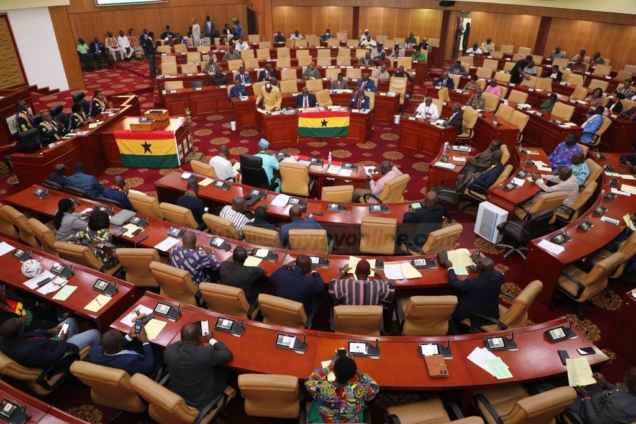The Food and Beverage Association of Ghana (FABAG) is up in arms over some tax proposals currently in Growth and Sustainability Bill.
The Association’s Executive Director, John Awuni is urging Parliament to pull the brakes on the proposal as it will further deepen the woes of producers.
The Growth and Sustainability Bill forms part of measures by the government to rake in GH¢2.2 billion for the country by the end of this year.
However, the development will see taxes slapped on the profit before tax of companies and institutions operating in the country, including firms in the extractive sector, such as mining and upstream oil and gas firms.
Mr Awuni says "if the government really has their ears on the ground and properly researched they will not go further to bring even 1% or 0.5% of any type of tax in the name of the fact that the companies will bear it."
"Companies will pass it on to the consumers. Consumers' disposable income is very low so how can they afford it? So it goes back to the fact that the companies cannot even meet their budget or sales targets."
The taxes will be spread across three categories dubbed A, B and C who are expected to pay 5% on Profit before tax, 1% of gross production, and 2.5% of Profit before tax respectively.
But ahead of its debate and possible passage, Food and Beverage producers are kicking against the bill over its propensity to kick many of its members out of business.
According to John Awuni, many of their members are already reeling under the implications of the economic turmoil and another imposition will throw them out of gear.
Speaking on Accra-based Citi FM, FABAG boss urged government to rather widen the tax net instead than worsen the burden on tax-compliant businesses.
"So clearly what we are looking at is that let the government ensure that people who are outside the tax bracket [are roped in]," he said.
Economists such as the University of Ghana Business School's Prof. Godfred Bokpin are worried that excessive tax burden on the populace will impede the economic growth expected.
Speaking on Joy FM’s Super Morning Show on Wednesday, he noted that there are already existing tax avenues that can be explored to generate more income for the nation.
Prof Bokpin believed that the ineffective implementation of tax policies causes great loss to the nation.
“You get the sense that the players in the economy are overburdened with taxes. When you interact with the private sector, and households you get that impression. In as much as we support the need to generate more revenue, we need to be mindful not to undermine private sector competitiveness.
“To do so, we can increase domestic revenue without increasing existing rates or introducing new tax handles. Ghana’s VAT efficiency rate is around 45%."
Latest Stories
-
ADB celebrates 60 years with health walk, eyes top 3 spot in Ghana’s banking sector
16 minutes -
The holiday that refused to die: Republic Day’s strategic resurrection
55 minutes -
My galamsey ventures
59 minutes -
Kumasi to get machinery park – 24H Economy Secretariat
1 hour -
NSMQ2025: St. James Seminary flexes national pedigree with big zonal win and riddle bonanza sweep
1 hour -
ECG assures stable power supply at KATH to improve healthcare delivery
1 hour -
NPP desperate to avoid defeat in Ablekuma North re-run – Omane Boamah
1 hour -
FirstBank Ghana launches 2025 internship to develop the next generation of leaders
1 hour -
Up from UPSA – whose nudity is naked?
1 hour -
Martyrs Day: Legal practitioners urged to uphold justice without fear or favor
1 hour -
Agradaa was jailed ‘not because of what she did, but who she is’ – Lawyer
2 hours -
Feed Africa first, we shall reach for the moon later – Obasanjo
2 hours -
BoG’s gold reserves increased by 8.05% since January 1, 2025, to 32.99 tonnes in June
3 hours -
Small-scale miners urged to operate responsibly to attract government’s support
3 hours -
Tourism Minister urges private sector to embed culture, excellence in hospitality
3 hours

